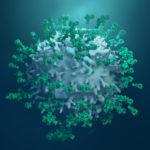
nCounter® Metabolic Pathways Panel
Helping Your Research
Quantify the expression of hundreds of genes involved in core metabolic processes and immunometabolism for human or mouse samples in a reliable, simple, and robust way using the nCounter Metabolic Pathways Panel. Understand the complex mechanisms behind metabolic adaptation, metabolic switching, metabolic alterations, and study changes in mitochondrial respiration and glycolysis.
The Metabolic Pathways Panel helps advance efforts towards novel therapeutic targets that take advantage of altered metabolism in cancer and other diseases. Get results in less than 24 hours from multiple sample types with a workflow that maximizes insight and minimizes turnaround time:
- Quantify the presence and relative abundance of 14 different immune cell types for immunometabolism studies
- Bypass RT and amplification by direct detection, yielding highly reproducible data
- Process your samples with < 30 minutes hands-on time and get results in < 24 hours

Panel Selection Tool
Find the gene expression panel for your research with Panel Pro
Find Your Panel
Product Information

Publications
Metabolic compensation activates pro-survival mTORC1 signaling upon 3-phosphoglycerate dehydrogenase inhibition in osteosarcoma
Osteosarcoma is the most common pediatric and adult primary malignant bone cancer. Curative regimens target the folate pathway, downstream of serine metabolism, with high-dose methotrexate.
Sustained Activation of AMPK Enhances Differentiation of Human iPSC-Derived Cardiomyocytes via Sirtuin Activation
Recent studies suggest that metabolic regulation may improve differentiation of cardiomyocytes derived from induced pluripotent stem cells (iPSCs). AMP-activated protein kinase (AMPK) is a master regulator of metabolic activities.
High-Content Phenotypic Profiling in Esophageal Adenocarcinoma Identifies Selectively Active Pharmacological Classes of Drugs for Repurposing and Chemical Starting Points for Novel Drug Discovery
Esophageal adenocarcinoma (EAC) is a highly heterogeneous disease, dominated by large-scale genomic rearrangements and copy number alterations. Such characteristics have hampered conventional target-directed drug discovery and personalized medicine strategies, contributing to poor outcomes for patients.
Request a Quote
Contact our helpful experts and we’ll be in touch soon.




